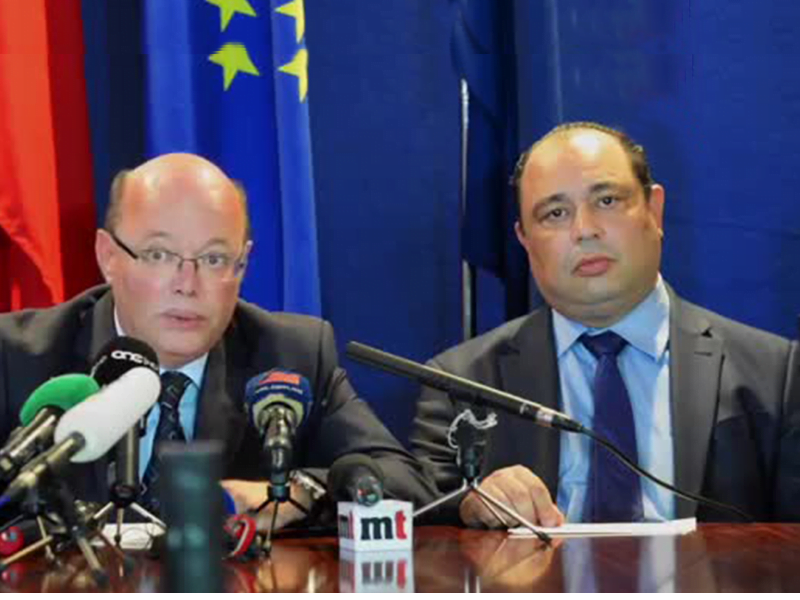In the first and only press conference held by the police on the investigation into the assassination of journalist Daphne Caruana Galizia, on 19 October 2017, former police commissioner Lawrence Cutajar had expressed surprise when a journalist told him that the public was questioning his integrity.
Cutajar retorted that he was “sorry to hear” that but he would not be resigning, insisting that his focus was to “give all (his) assistance and know-how to the investigation”.
The then-police commissioner’s integrity was questioned by the public after a number of episodes, including the infamous incident where Cutajar was found socialising at an eatery in Mgarr following serious allegations by Caruana Galizia that the Prime Minister’s wife was the owner of Egrant, an offshore company revealed in the Panama Papers exposé.
Former deputy commissioner Silvio Valletta, who sat next to Cutajar at that press conference and did much of the talking, pushed the same narrative – that the nature of the work was “intense”, and that they are doing everything they can to get to the bottom of the murder.
The uneventful press conference was met with uproar; it was three days after a murder that shook the country, and the nation was in shock (apart from some of the Labour Party’s core supporters who were celebrating her death).
Answers were hardly forthcoming from both Cutajar and Valletta, who justified their inability to respond to questions by citing the ongoing magisterial inquiry which “by law” prevents them from divulging information.
Now, over two and a half years following the murder, the names of both Valletta and Cutajar have emerged in ongoing court proceedings in the compilation of evidence against murder suspect Yorgen Fenech, as well as the public inquiry into the journalist’s death.
Cutajar had long been criticised for not taking action on serious allegations linked to government officials, both before and after 16 October 2017. But on Monday, it was revealed that Cutajar may have had a role to play in preventing justice, having possibly been the person who tipped off the middleman about police surveillance, according middleman Melvin Theuma’s testimony under oath.
Theuma told the Court how his friend Edwin Brincat, known as il-Ġojja, had visited Cutajar to discuss a traffic fine. During the meeting, Cutajar had asked Brincat whether he was aware of any recordings about the murder. Brincat had warned Theuma to be careful, because Cutajar’s comment meant that the police were aware of his recordings, indicating that the police were tapping Theuma’s mobile device.
Cutajar was also mentioned in Theuma’s testimony when the latter said that he had asked murder suspect Yorgen Fenech to intervene with Cutajar to avoid involving his relatives in the raid. Fenech had consoled Theuma, telling him that he would just be questioned and then released.
Following these revelations in Court, Cutajar was suspended from his latest controversial role as a consultant in the Home Affairs Ministry – a contract he was given on the same day he left his role as Police Commissioner earlier this year.
The implications against Valletta were just as shocking.
Not only was Valletta one of the people feeding inside information about the ongoing investigations to the murder suspect, according to Theuma, but he also enjoyed a close relationship with Fenech, allegedly spending time with him socially at his farmhouse and travelling with him.
Valletta went on a vacation with Fenech at a time when the police had reportedly already known that the latter was the suspected mastermind, and shortly after Valletta had been ordered by the Courts to step down from the case after Caruana Galizia’s family won a Constitutional case arguing a conflict of interest due to his marriage to the Gozo Minister at the time.
At the press conference in October 2017, a journalist expressed frustration at the futility of calling the media to a press conference if they “couldn’t ask questions”.
Valletta had retorted that the press was called “to ensure (the police) are doing (their) best” – a line that is chilling with hindsight, raises further questions on Cutajar’s integrity and increases concern about those who led the investigation into the journalist’s assassination in a context that links her brutal death to the highest corridors of power.












